
|
GAIL TAYLOR - Chair of the Department of Plant SciencesGail Taylor is the new department chair, and professor, in the Department of Plant Sciences at the University of California, Davis. Dr Taylor’s research is focused around leafy green salad crops, particularly watercress and lettuce and fast growing trees for bioenergy. In each she is focused on understanding the genetic and genomic basis of quantitative traits underpinning plant vigour, stress resilience and for leafy crops, nutrient densification. She has developed the only watercress breeding programme, globally and currently is establishing this crop in California. ⟶ |

|
DIANE BECKLESDr. Beckles' work focuses on regulation of carbon allocation in plants and how this changes in response to environmental stress; starch granule biosynthesis and molecular structure and; postharvest quality of horticultural crops. ⟶ |
 |
ALAN BENNETTDr. Bennett’s research program focuses on the genetic modification of plant quality and, particularly, on the improvement of the postharvest characteristics and the enhancement of plant quality. They approach issues of development and postharvest performance with a combination of biochemical, genetic and genomic experimentation in order to understand the regulation and basis of fruit production and quality. ⟶ |
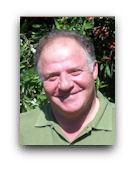 |
EDUARDO BLUMWALDDr. Blumwald’s research program is multidisciplinary in nature, combining physiology, biochemistry, molecular biology, genomics and proteomics. The general objectives of our work are: (i) the cellular and molecular mechanisms that regulate ion homeostasis in plants… ⟶ |
 |
KENT BRADFORDDr. Bradford’s research and teaching interests are in seed biology, production and quality. He is the Director of the Seed Biotechnology Center, which works closely with the seed and plant breeding industry to conduct research that facilitates breeding, cultivar development, seed production and seed quality assessment and conservation. ⟶ |
 |
ROGER CHETELATDr. Chetelat’s lab studies the reproductive barriers that limit hybridization between cultivated and wild tomato species. Their focus is on unilateral incompatibility, a prefertilization barrier, and they are cloning the underlying genes and exploring their relationship to self-incompatibility. ⟶ |
 |
LUCA COMAIDr. Comai’s lab is involved in two areas pertinent to breeding. In the first, they study genome regulation, hybridization, and heterosis responses in chromosome copy number variants and interspecific hybridization. ⟶ |
 |
DOUG COOKFour main areas of research define the Cook laboratory: Analysis of legume genome evolution by means of comparative genomics and phylogenetic methods; Development of genomic resources for genetic improvement of crop legume species, particularly in the developing world; Genetic, molecular and cell biology of signaling and development during symbiotic nitrogen fixation; Functional genomics of bacterial disease susceptibility and resistance in cultivated grapes. ⟶ |
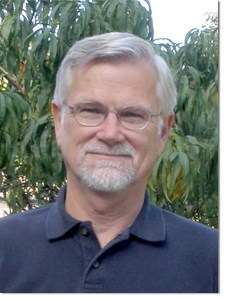 |
TED DEJONGDr. DeJong is the Principle Investigator for a Dried Plum/Prune Breeding and Cultivar Development Program that has as its primary goal the development of new dried plum cultivars that mature earlier or later than the current industry standard cultivar, ‘Improved French.’ ⟶ |
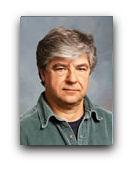 |
JAN DVORAKDr. Dvorak’s principal interest is plant structural genomics, focusing on the physical mapping, genome sequencing and the development of marker technologies for plant breeding and genetics. Additional interests are crop evolution, crop genetic diversity, genome evolution and plant evolution. ⟶ |
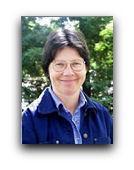 |
LYNN EPSTEINDr. Epstein’s interests are in sustainable and organic agriculture, she is willing to assist in the selection and breeding of disease-resistant varieties. ⟶ |
 |
ROBERT GILBERTSONDr. Gilbertson is interested in utilizing various approaches to assess plant pathogen diversity and to apply this information in the development of disease resistant varieties through collaboration with plant breeders. He is also interested in developing improved pathogen detection and inoculation methods in order to facilitate improved screening of crop varieties, germplasm and progenies for disease resistance to a variety of pathogens. ⟶ |
 |
THOMAS GRADZIELDr. Gradziel’s research focuses on the development of improved breeding lines and varieties of almond and processing peach. In his teaching, he examines the genetic and agro-ecological components of tree crop production as well as effective problem solving approaches in these complex, multidisciplinary systems. ⟶ |
DAN KLIEBENSTEINThe major question that Dr. Kliebenstein’s lab is studying is how and why plants make secondary metabolites. Secondary metabolites are plant compounds that provide the taste, flavor, color and medicinal activities that people associate with specific plants. ⟶ |
|
 |
TOM LEDIGDr. Ledig’s research interests are in conservation genetics and biogeography of rare conifers from the U.S. and Mexico, and conservation of genetic resources in general. ⟶ |
 |
DAVID NEALEDr. Neale’s research interests concern the genomics of forest trees, complex traits, QTL and association studies, population genetics and adaptation, and marker-based breeding. ⟶ |
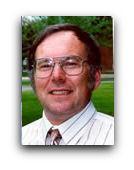 |
DAN PARFITTDr. Parfitt’s academic training is in the area of plant breeding and genetics, with practical experience breeding potatoes, sunflower, and more recently pistachio, of which he has recently released three new cultivars. He is also interested in the collection, maintenance, and evaluation of genetic diversity in economically important plants, especially the application of molecular genetic tools for evaluation of diversity. ⟶ |
 |
ANN POWELLDr. Powell’s research investigates plants that produce edible fruit to improve the quality and production of human food. They study the biological processes accompanying and causing deterioration, particularly after harvest, with the intention of developing varieties with improved quality characteristics. ⟶ |
 |
PAM RONALDDr. Ronald’s lab use genomic, proteomic, and informatic tools to study rice perception, signaling, and response to biotic and abiotic stress. Because of its diploid genetics, small genome size, extensive genetic map, available genome sequence, and relative ease of transformation, rice is a model for other monocots. ⟶ |
 |
JEFFREY ROSS-IBARRADr. Ross-Ibarra’s lab studies the evolutionary genetics of crops and their wild relatives, focusing primarily on maize. ⟶ |
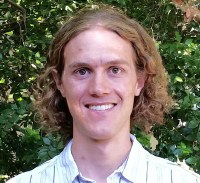
|
DAN RUNCIERuncie is an assistant professor in the Department of Plant Sciences. Using statistics, models, and lab experiments, he looks at how plants respond to changing environments. He completed his Ph.D. at Duke University and was a postdoctoral scholar in the UC Davis Department of Evolution and Ecology before joining the faculty in 2015. ⟶ |

